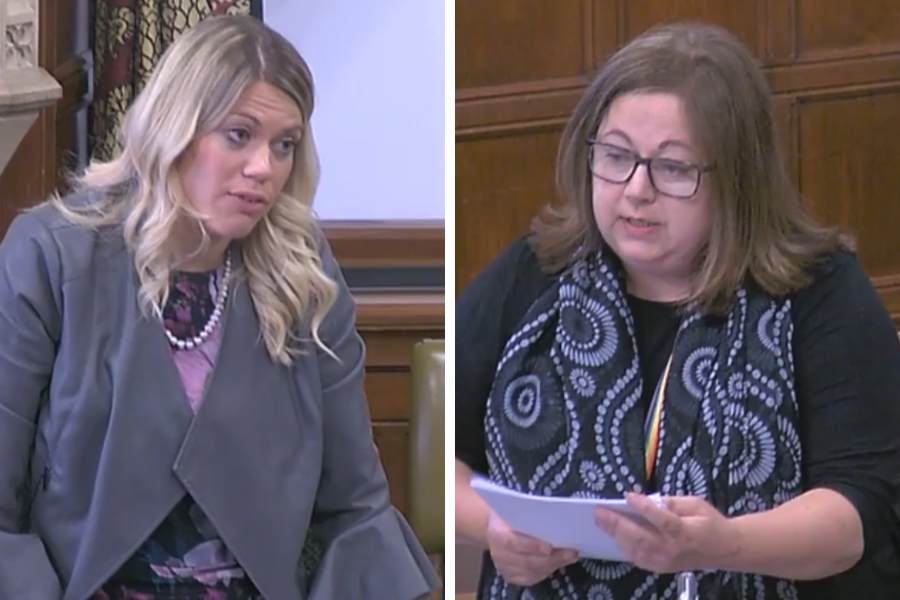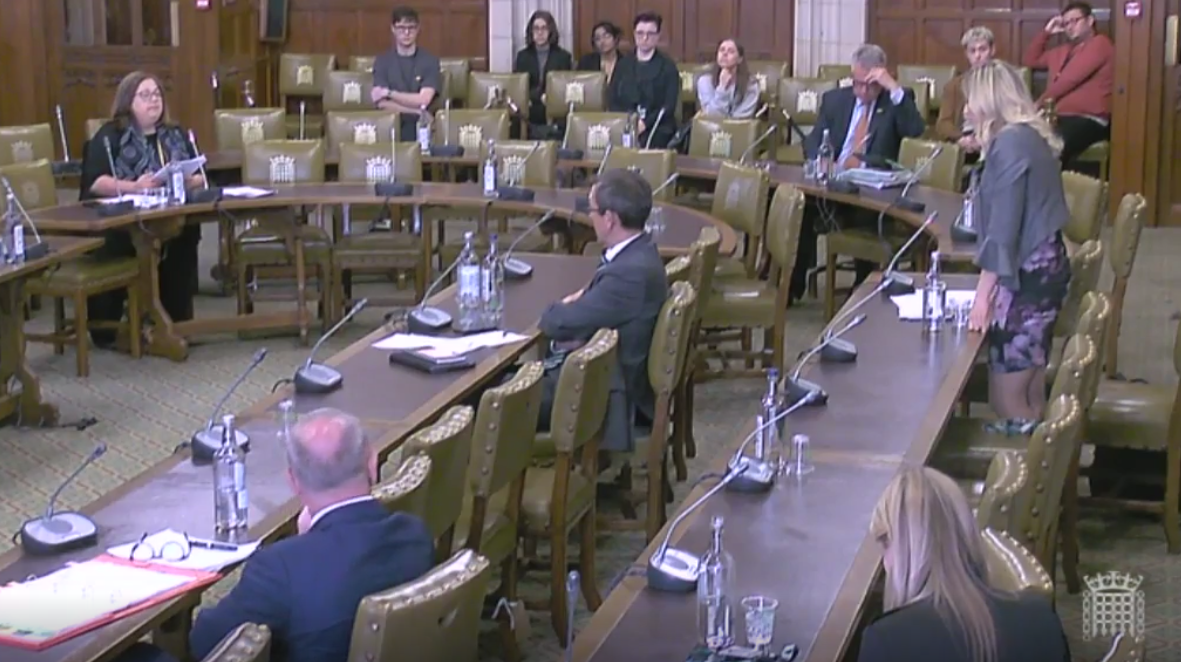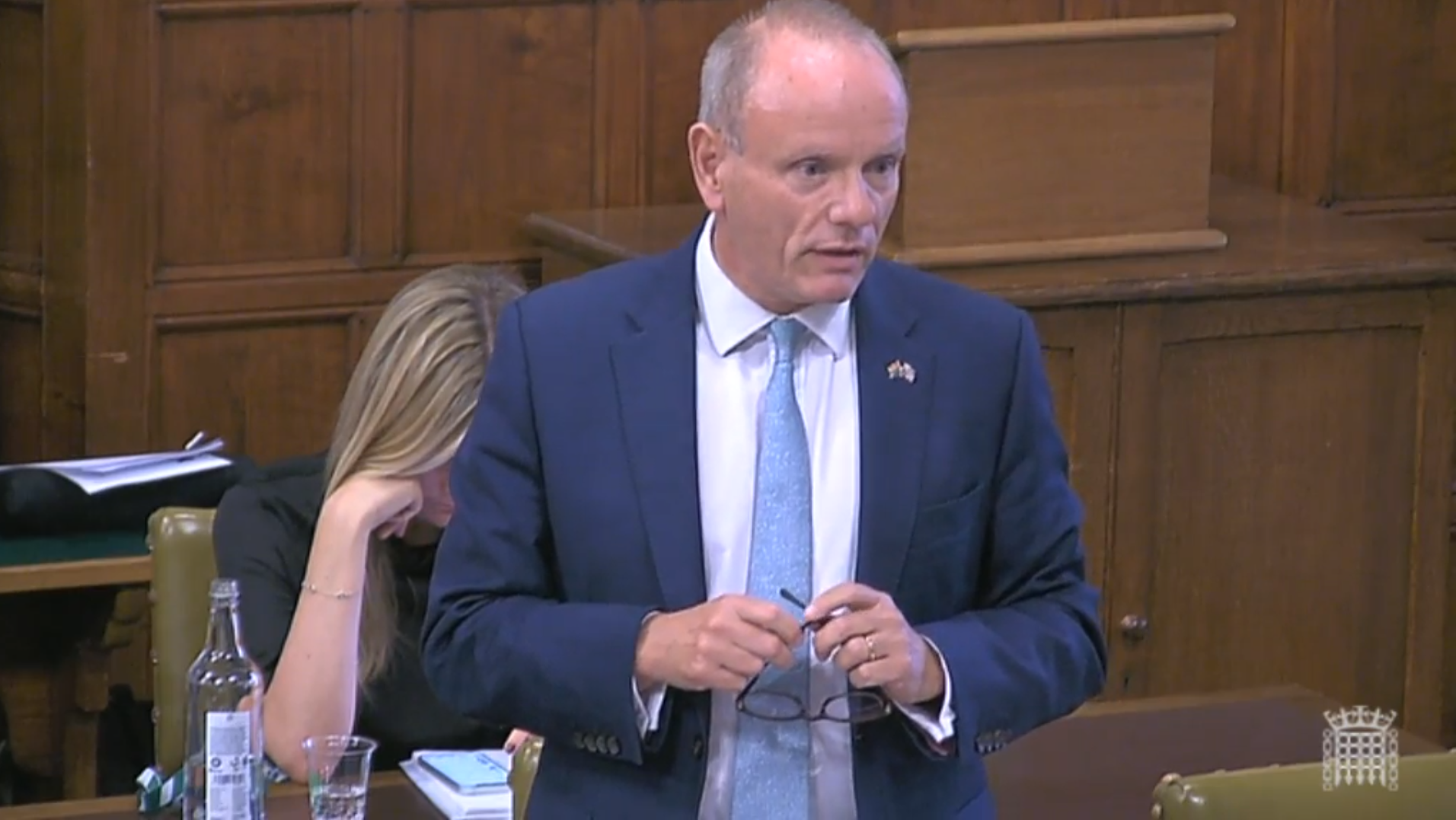
AN SNP MP hit back at a Tory who claimed that non-binary people are more likely to be autistic during a debate on legally recognising the gender.
On Monday, MPs debated an e-petition signed by over 140,000 people calling for non-binary people to be given legal status in the UK.
Non-binary is an umbrella term for people whose gender identity doesn’t sit comfortably with man or woman, but identities are varied and can include people who identify with some aspects of binary identities, while others reject them entirely.
Opening the debate, Tory MP for Don Valley Nick Fletcher said in a message to non-binary people that: “We accept you as you are, however, it does not follow that the law has to be changed to reflect the way certain individuals feel.”
He later added that he didn’t believe people “need a mark in a box to exist”, criticised the use of hormone blockers in children, and claimed that if trans women were allowed to take part in sports then the best women could hope for would be “second place”.
Miriam Cates, Tory MP for Penistone and Stocksbridge, later told Westminster Hall that making non-binary a legalised gender would be a mistake as it was “putting ideology into law”.
Cates also claimed that there was a link between those who are autistic or have mental health conditions “latch onto gender theory as an explanation of why they might be different”.

Meanwhile, Tim Loughton MP lamented that the drop-down menu on the House of Commons website allowed the public to search for MP’s by gender, and that this now included non-binary, despite the fact it is not legally recognised.
In her response to the contributions given by Tory MPs, Oswald said that she was not sure that anyone who had a personal interest in the debate would have “felt comfortable” having heard what the MPs had to say.
She continued: “I think these kinds of conversations are well overdue, because we should be in my view on a journey to a situation where it's an absolutely normal and unremarkable thing to accept people for who they are.
“We shouldn't have to hear othering commments. We shouldn't hear portrayals of non-binary people as a threat, that's neither fair nor helpful nor accurate.
“And I'm uncomfortable with the notion that was expressed by the Honourable Member for Penistone and Stocksbridge, that this is something we should consider in the context of it being a medical complaint or a concern that is related to people who are neurodiverse for instance.”
Cates intervened and said: “But the evidence is pretty clear that a disproportionate number of children who identify as trans and non binary are autistic, have been diagnosed as autistic and many more awaiting diagnosis.
“There is a very clear link between children who are neurodiverse and children who are choosing to go down this path, does she not think that in itself is of a concern and that those children should be surrounded with safeguarding support.”
Oswald hit back: “I think that all children should be surrounded in safeguarding and support and I suspect that that is something that she and I can agree on, but I think to conflate autism diagnosis and people who are non binary is a mistake and I think unhelpful in this bigger picture.”
Fletcher also intervened in Oswald’s speech to say that his speech was built around the fact that if the Government was to move forward with the legislation it would “change society as a whole”, how young people grow up and how women identify themselves.

Oswald replied: “I have to say, I’m a woman and I’m not going to be erased by other people having the opportunity to have their identity respected, it’s absolutely no threat to me and no threat to my identity.”
The SNP MP also pointed out that non-binary identities are legally recognised in other countries around the world, such as India and New Zealand to name a few.
Equalities minister Mike Freer also contributed to the debate and told MPs that “the issue of non-binary people is an emerging focus of LGBT equality”.
He added: “And that is true that what is true one person's experience living as a non binary individual may not be the same as another person's.
“And it is those experiences, this information and that data that the government is committed to examining and monitoring. Members have called for more data and more research, and that is exactly the position of the government because we must understand how for non binary people, everyday life is impacted by their identities and exploring any obstacles they face that may require addressing in law.”







